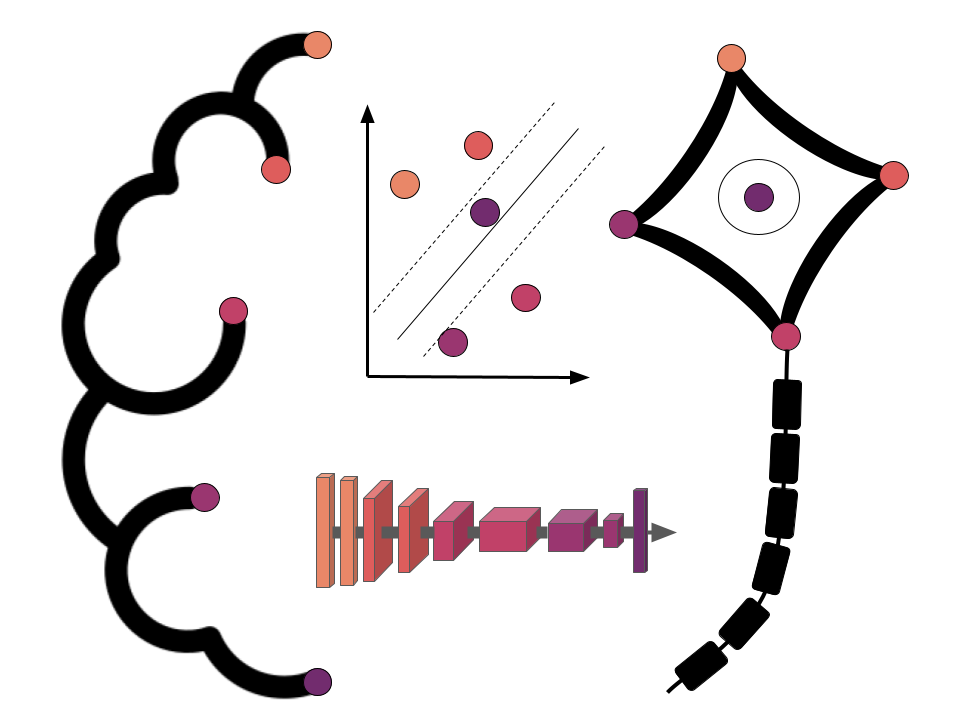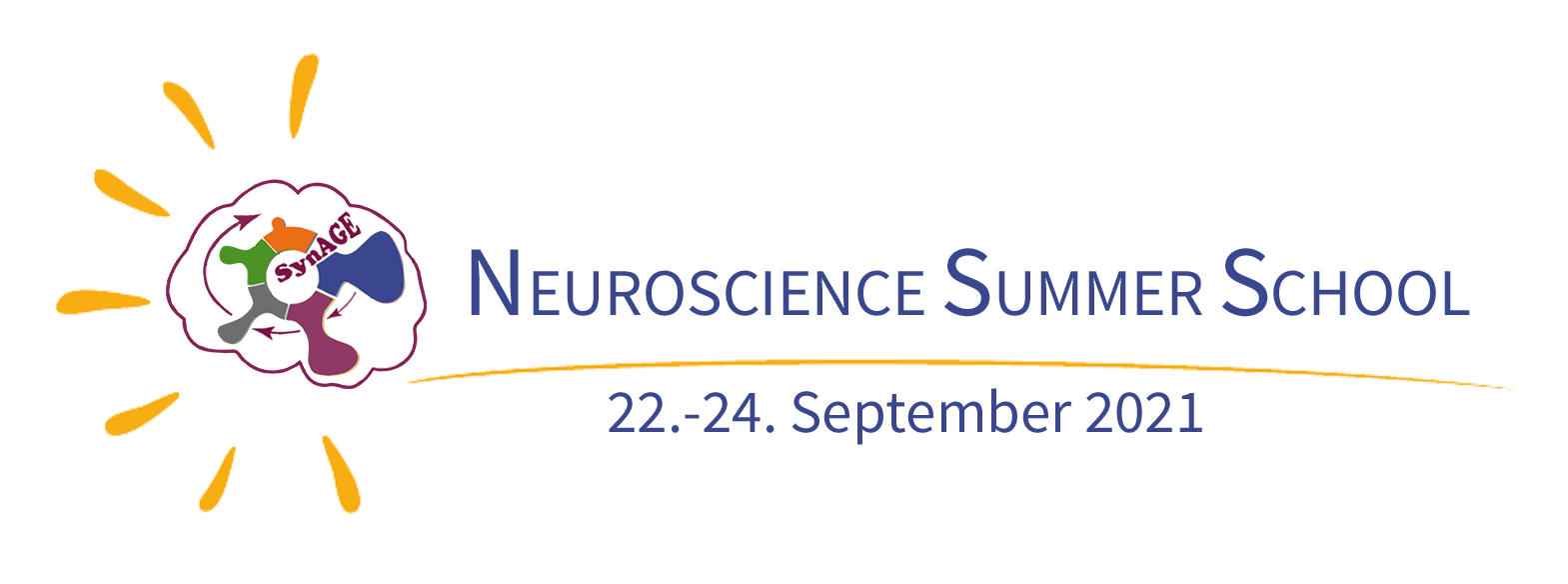
Welcome!¶
Hello everyone and welcome to the “ML/DL with a focus on Neuroscience” workshop
conducted during the RTG 2413 SynAGE summer school, we’re glad to see you here!
Within these pages, we provide information on how to follow the workshop, as well as respective materials. This jupyter book will include the used slides and code in a way that they can be explored in an interactive manner. You can navigate through the respective sections via the TOC on the left side and within sections via the TOC on the right side. The three symbols in the top allow to enable full screen mode, link to the underlying Github repository and allow you to download the contents as a pdf or jupyter notebook respectively. Some sections will additionally have a little rocket in that row which will allow you to interactively rerun certain analyses via cloud computing. Additionally, we support public reviews and comments through an hypothes.is plugin with which you can interact on the right side. All of this awesomeness (talking about the infrastructure and resource) is possible through the dedicated and second to none work of the Jupyter community, specifically, the Executable/Jupyter Book and mybinder project.
A primer on ML/DL with a focus on Neuroscience¶
Throughout the last couple of years, ML and DL become exponentially more and more prominent within the majority of research fields. Neuroscience is no exception to that, as things like personalized medicine, image/data processing and the combination of biological and artificial neural networks are treated as central research questions. However, what’s actually behind all these buzzwords? Is ML and DL really necessary in the majority of cases? Can they actually applied to any kind of data and help solve distinct problems? Within this workshop which was organized as part of the SynAGE 2021 summer school, we will introduce and discuss important aspects of these methods and evaluate their usability, as well as potential application to research projects of the attendees. While the first, rather theoretical part will be publicly shared here, the application focused part won’t as this will include datasets of the attendees.
You can checkout the respective sections:
An overview
What’s this workshop about and how is it organized?
Setup
How are things implemented and supposed to work?
General outline
What are the specific topics and aspects taught?
Prerequisites
All things gotta start somewhere and ML/DL are of course no exceptions to that, especially since a certain amount of digital literacy, programming, etc. is required. Here, we gathered some resources folks can check out in preparation for the course or just for fun.
Machine learning
Within the first part of the workshop, we will focus on “classical” machine learning. But what is it actually and what are important aspects folks should know about?
Deep learning
Naturally, the complexity of algorithms regarding data processing scales up and within that, the application of deep learning in the field of neuroscience became more and more prominent. Here, we’re going to dive a bit into central questions like: is it really AI, how does it work and can I apply it to my data?
Feedback
How did attendees like the course? Here we will publicly provide the feedback we received.
Code of Conduct
Necessities for creating an open, fair, safe and inclusive learning experience.
I’ve got a question!¶
In case you have any questions or difficulties going through the workshop, please don’t hesitate a single second to get in touch with us. A great way to do this is to open an issue on the GitHub site of the Workshop (also possible via the GitHub button at the top of the pages). We would also highly appreciate and value every feedback or idea or you might have (via issues or hypothes.is annotation feature on the right).
Acknowledgements¶
This workshop was organized by the students of the RTG 2413 SynAGE, as part of its 2021 summer school.

The summer school itself was funded by the Deutsche Forschungsgemeinschaft (DFG).

Peer Herholz’ work on and ability to compile this workshop was enabled through training received at the Montreal Neurological Institute, specifically the NeuroDataScience - ORIGAMI lab supported by funding from the Canada First Research Excellence Fund, awarded to McGill University for the Healthy Brains for Healthy Lives initiative, the National Institutes of Health (NIH) NIH-NIBIB P41 EB019936 (ReproNim), the National Institute Of Mental Health of the NIH under Award Number R01MH096906 (Neurosynth), a research scholar award from Brain Canada, in partnership with Health Canada, for the Canadian Open Neuroscience Platform initiative, as well as an Excellence Scholarship from Unifying Neuroscience and Artificial Intelligence - Québec.


